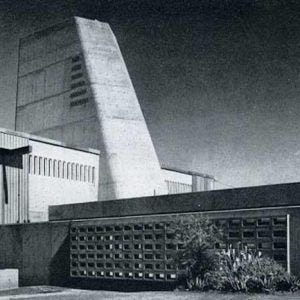Despite the USA being in the midst of its longest ever government shutdown, President Donald Trump on 14 January signed a bill into law aimed at accelerating development of a new generation of advanced nuclear reactors. The bill had the support of both Republicans and Democrats.
The Nuclear Energy Innovation and Modernization Act calls on the Nuclear Regulatory Commission (NRC) to make its review process "technology-inclusive" by 2028. The process was designed for light-water reactors that predominate, but newdesigns use fundamentally different technologies. The law also calls for increased transparency on the costs and timelines of NRC reviews.
In addition to directing NRC to modify the licensing process for advanced commercial nuclear reactor facilities, the bill establishes new transparency and accountability measures to the regulator's budget and fee programmes. It alsocaps fees for existing reactors. The NRC currently derives most of its funding from fees paid by applicants.
The bill also directs the NRC to examine ways to improve the efficiency of uranium licensing, including by investigating the safety and feasibility of extending uranium recovery licences from ten to 20 years' duration. It also directs the Department of Energy (DOE) to issue a long-term plan detailing the management of its excess uranium inventories at least once a decade.
NRC is unaffected by the partial government shutdown, which has slowed renewable energy permitting and forced hundreds of thousands of federal workers to work without pay.
The new bill follows an earlier nuclear assistance law passed with bipartisan support and signed by Trump in September 2018. The Nuclear Energy Innovation Capabilities Act called for a cost-sharing grant programme to help advanced reactors pay for the lengthy licensing process, and construction of a fast neutron source for testing advanced technologies. The USA has no such facility and companies currently have to look overseas to test certain reactor designs. The two new laws set in motion a number of small efforts that could produce more efficient testing of new technologies but do not guarantee advanced nuclear will succeed in the marketplace.
Only one of the new nuclear companies, NuScale, has officially begun the NRC review process using light-water reactors, scaled down sufficiently to be produced in a factory; which avoided the need to win approval for a new reactor design. NuScale also received a grant from the DOE worth $217 million to help pay for the review, which will take several more years.
President and CEO of the US Nuclear Energy Institute, Maria Korsnick, described the new law as a "significant, positive step" towards the reform of the NRC's fee collection process. "This legislation establishes a more equitable and transparent funding structure which will benefit all operating reactors and future licensees," Korsnick said. "The bill also reaffirms Congress’s support for nuclear innovation by working to establish an efficient and stable regulatory structure that is prepared to license the advanced reactors of the future."






